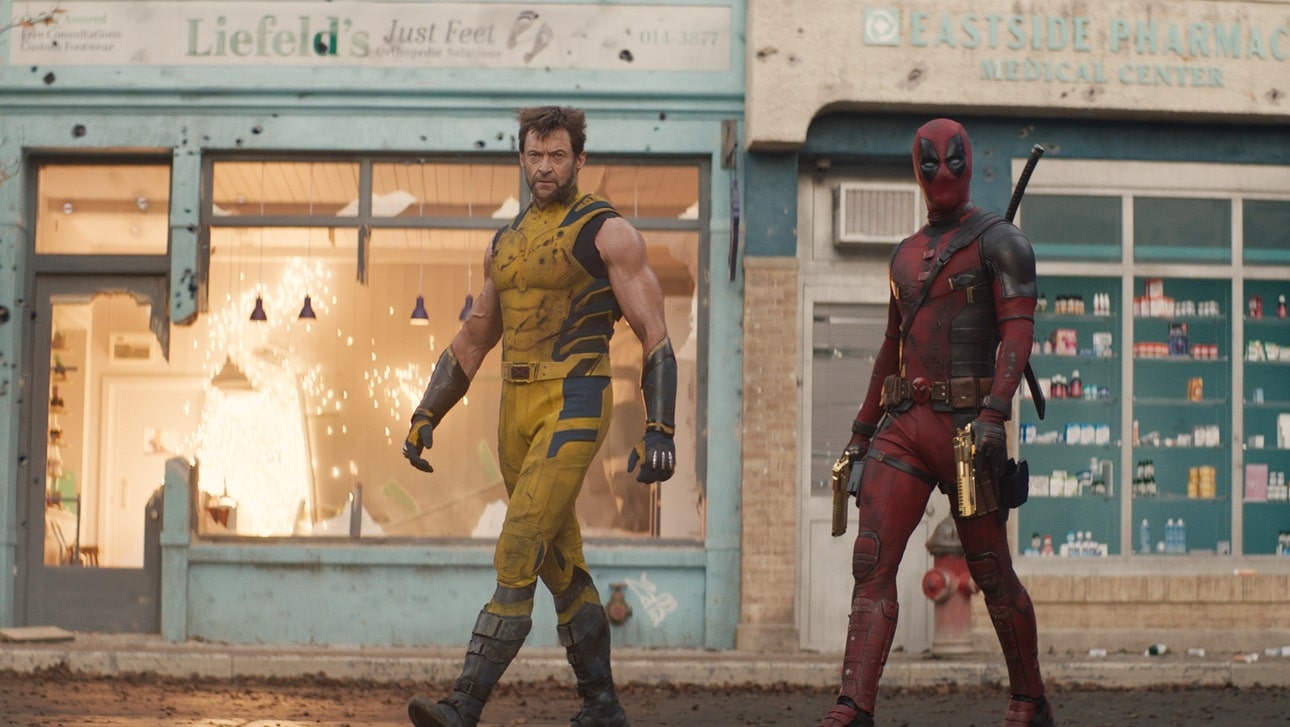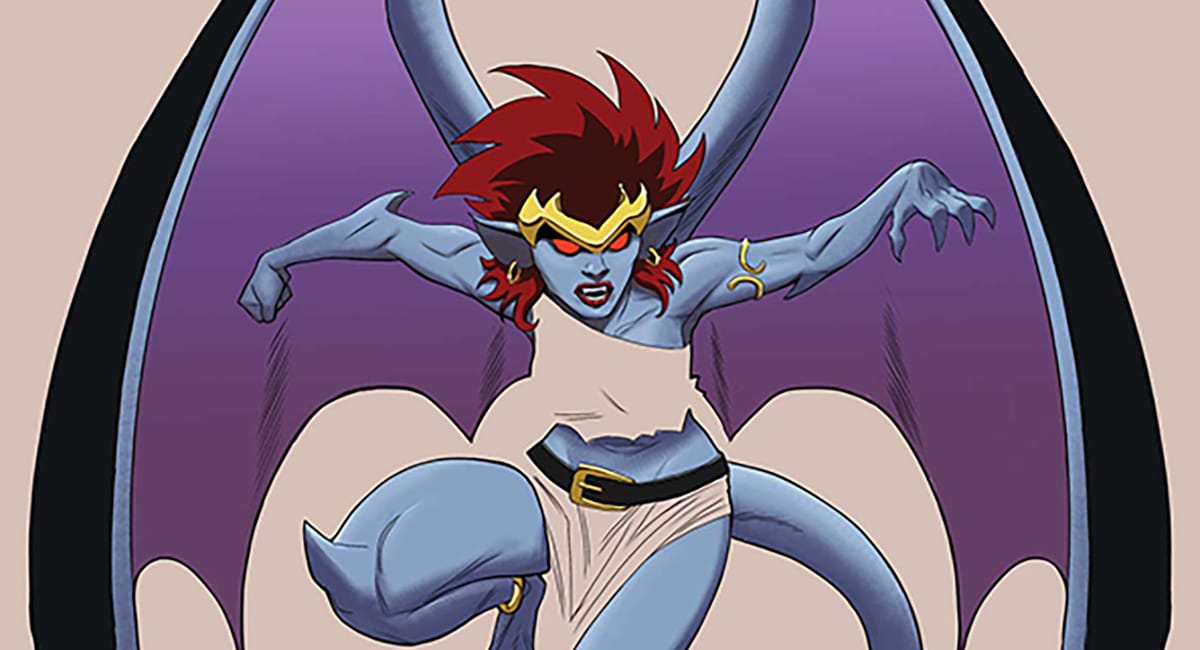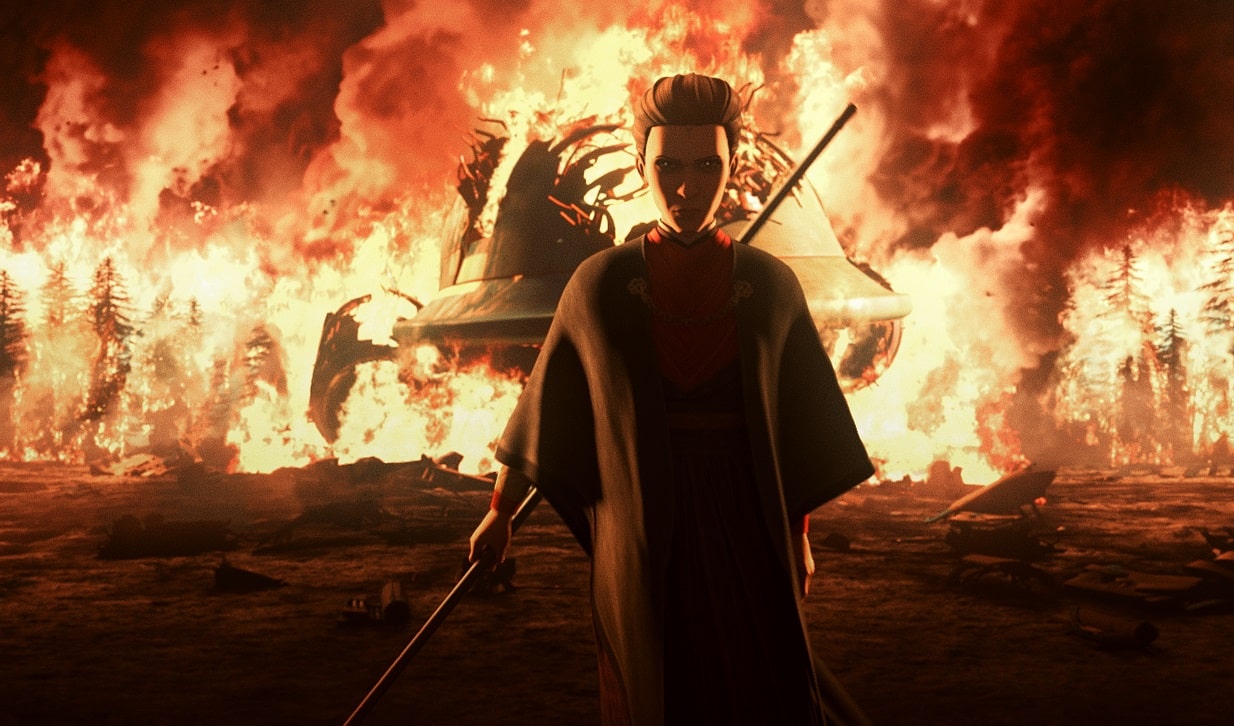CNBC, which seems to have a bug planted in the room where Fox/Disney merger talks are being held, reports that the acquisition will be announced Thursday.
In the spirit of the “End times” vibe we’re living in, this deal is seismic, seeing the number of big movie studios go from six to five, and with Fox, one of the fabled studios from the Golden Age of Tinseltown reduced to a shingle at Disney. Variety offers a bit more context:
Not all of Fox’s assets will go to Disney. The company will retain Fox News, the Fox broadcast network, and Fox Sports 1, which will be reconstituted into a new, independent company. According to CNBC, that would be worth roughly $10 a share. As part of the deal, Fox shareholders will get a stake in the new company, along with shares of Disney. The pact is expected to dramatically reshape the entertainment business, eliminating one of the six major studios and giving Disney access to a vast library of shows and movies as it tries to launch a streaming competitor to Netflix. Under CEO Bob Iger, Disney has established a reputation for spending big to nab major entertainment companies, shelling out billions for the likes of Marvel, Pixar, and Lucasfilm.
Notably, the single thing that everyone has said about tha deal is that FINALLY the X-men can be united into the Marvel Cinematic universe. For those who don’t follow studios, Fox owns the rights to the X-men, mutants, Deadpool and the Fantastic Four. Sony owns the rights to Spider-Man and Disney/Marvel owns the rest.
While it’s exciting to think of Deadpool meeting Groot…the idea of a bunch of superhero movies driving the fate of Hollywood’s biggest studios was once unthinkable but now…business as usual.
Let me rephrase that – is it REALLY that exciting to see Deadpool meet Groot? Wasn’t the Deadpool movie absolutely perfect as it was with the use of cheap X-men – Colossus and the now iconic Negasonic Teenage Warhead – making it a far better film then if the entire mutant army had shown up?
Be careful what you wish for.
Logan director James Mangold sounded a note of caution in an interview at Deadline:
“The real thing that happens when you make a movie rated R, behind the scenes, is that the studio has to adjust to the reality that there will be no Happy Meals. There will be no action figures,” Mangold said. “The entire merchandising, cross-pollinating side of selling the movie to children is dead before you even start. And when that’s dead, it means you’re making a grown-up movie.”
Once the studio adjusts its expectations, he added, “you don’t come under the pressure of how a 12-year-old is going to react to the movie, not just in terms of violence or language but in terms of pace or even the depth of interest in what people are talking about.”
Given MCU Mastermind Kevin Feige’s tussles over tone with Edgar Wright and other filmmakers who wanted to stray a bit from Feige ranch, one can legitimately wonder if it would have been possible to make excellent, R-rated films Deadpool and Logan under this new Disney/Fox regime. It’s a very serious question, and even if the MCU is the chocolate cake of entertainment – a solid, crowd pleasing choice – eventually you get tired of everything, even chocolate cake. We need more voices not fewer.
Crossover events aside, the real world implications of this deal are huge, as numerous thinkpieces have discussed.
Disney would own The Simpsons. Mind blown.
Scott Mendelson puts it very simply: (emphasis mine,)
Last year, Walt Disney had a jaw-dropping 26% of the domestic box office while Fox had 13%. With Fox and Disney combined into one entity, it’s plausible to see Walt Disney’s theatrical output controlling close to 40% of the theatrical business. With that kind of hold, the Mouse House could essentially rewrite the rules for how its movies are seen in theaters (higher ticket prices, higher percentages back to the studios, exclusive auditorium control, etc.) in a way that wouldn’t remotely help the likes of Universal or Warner Bros.
Slashfilm looks at many of the ins and outs, from the further erosion of mid-budget movies to the potential loss of Blue Sky Studios, Fox’s animation arm, to the final death of the Inhumans as an X-Men substitute and, most importantly, the obvious human toll:
Negative: Fox Employees Could Lose Their Jobs
Since originally publishing this piece, a Slashfilm reader pointed out that we failed to mention another obvious negative to this potential acquisition: the hundreds of jobs that could be on the line for current Fox employees. Corporate acquisitions don’t often allow for a clean and easy transfer of power – at best, the buyer replaces people in power with whomever they think are right for those jobs, and at worst, they decide to clean house completely, wiping out entire departments and putting them under the purview of previously-existing management ecosystems. We’ve been talking about the acquisition in big picture terms, but it’s worth remembering that there’s a human cost to something like this as well. (Ben Pearson)
Deadline has a solid round-up of effects on the Fox brand:
1. What will Fox 2.0 look like? In the era of vertical integration, as linear ratings continue to decline — and with them TV advertising revenue — the network business only appears sustainable if a net is aligned with a studio so content can be also exploited internationally and on other platforms. That is why in 2014, 21st Century Fox moved to further integrate its Fox broadcast network and 20th TV by putting them under the same leadership: long-time studio heads Dana Walden and Gary Newman. Since then, Fox has increased the share of owned programming. Last year, the network picked up only one non-20th TV new scripted series, this past May, all new scripted shows came from the sister studio.
The Guardian assesses the impact on Sky News, the news channel Fox owns in the UK:
But just concentrate on what may happen next if the deal is made. Sky TV, including Sky News, would be Disney-controlled. No competition and mergers policy there (which may be why the Competition and Markets Authority has asked for yet more time to make up its mind). Perhaps no one will need to ponder further because the shadow of Murdoch is lifted. But perhaps, too, Disney won’t want to keep Sky News – and its losses – going anyway. A zero-sum game of some sadness.
So yeah, basically, this changes everything. Really and truly. It would be nice to have a Fantastic Four comic again, but the price paid may be much higher than anyone anticipates.












There is some indication that Fox might only have free and clear access to the FF film distribution rights. Apparently Constantin Films has a stake in the production rights and that Fox has been in partnership with them. Not that this is insurmountable for Disney, only that there will probably be some additional steps necessary to bring FF to the MCU.
https://screenrant.com/disney-fox-fantastic-4-rights-constantin/
All of this talk of Disney’s acquisition also assumes that the federal government will approve. I’m not fully certain that is automatically a given. The AT&T acquisition deal has run into some trouble on that front. One explanation offered up for that is that the Trump administration has a mad-on re: CNN being part of that deal, but it is also possible that some of the non-political appointees (i.e., career folks in the relevant depts) are having second thoughts over whether they should have permitted the acquisition of NBC et al by Comcast. **IF** the latter is a contributor to the federal objections to the AT&T/Time-Warner deal, it wouldn’t necessarily be a giant surprise to see some federal objections to this acquisition by Disney.
Edgar Wright left because of Marvel Creative Comitee which doesn’t exist anymore (and, as Vanity Fair profile disclosed. also tried to prevent Gunn from using 70s music in Guardians). That was reported by outlets covering movie business, so maybe you should correct the passage about Feige and Wright.
Given the way that marvel has written it’s heroes in the past few years I’d just as soon as see the FF stay in limbo. I did like the movies, I liked the cartoon series that was based on the movies. Not perfect but I don’t want to see the characters butchered for another event like HYDRA-Captain America.
They already ruined Star Wars, now they’ll ruin more franchises.
For super hero fans this would of course be great. But the larger implications on the movie business you mentioned are actually quite concerning when you think about it.
I’m also really happy with how Fox has handled the X-Men in recent years. I feel they have hit the right kind of tone between Marvels ultra light and DC’s very grim and dark approach. I hope that won’t change after this merger.
…and the demise of FX tv. I count Fargo, Homeland, The Americans and – my personal favourite – The Shield, as exceptional product Fox by FOX that I struggle to see Disney matching in interest, edginess, etc. etc.
Just watching Legion on dvd for the first time now, and it’s so inventive. I too think Fox’s X-Men in movies and tv has been great.
Sad day
The Simpsons are owned by Matt Groening’s The Curiosity Company and the also independent Gracie Films not Fox the same is true with Seth MacFarlane’s stuff.
If this deal goes through quickly expect to see all Fox’s 2018’s pulled or have the release dates changed or maybe even sold to other film studios for distribution.
No way Deadpool 2 will release one week after Solo for instance.
Disney acquiring 20th Century Fox solves the problem of what the MCU will do for “Phase Four” – when Downey, Evans, and Hemsworth either age out or get too expensive – they can (re)introduce the FF and (we assume) finally do them some justice. Also allows them to perhaps (re)introduce a new, recast Wolverine…
Not happy that Fox, which has existed since about 1915, would likely cease to exist as a movie studio under this deal. Pretty much the only movies Disney releases these days are franchises and brands (Marvel, Lucasfilm, Pixar, remakes of classic Disney animated features) and this “merger” would only escalate this trend.
As James Mangold points out, a movie that doesn’t have a Happy Meals/action figure tie-in will likely not get the green light if Disney takes over. So long Fox Searchlight, which made movies for adult audiences. Remember them?
Wonder if this will be another hit for some of the Comic Companies that license Fox properties. One assumes that Dark Horse could lose Aliens to Marvel, not that they are doing much with it these days. Think IDW could take a few hits on this one as well with at least X-Files moving being possible.
This deal is great if all you care about is superhero movies. It’s awful if you have interests beyond, say, Iron Man teaming up with Deadpool.
As Chris Evangelista points out at Slashfilm: “The mid-budget film is barely a reality at this point; when this purchase goes through, I have a feeling it will become completely extinct. … There’s more to movies than just blockbusters, folks. At least, there used to be.”
This will be, essentially, the death of cinema (at least in the United States). And, sorry, I don’t regard Netflix original programming as cinema.
“All of this talk of Disney’s acquisition also assumes that the federal government will approve. I’m not fully certain that is automatically a given. The AT&T acquisition deal has run into some trouble on that front. One explanation offered up for that is that the Trump administration has a mad-on re: CNN being part of that deal, but it is also possible that some of the non-political appointees (i.e., career folks in the relevant depts) are having second thoughts over whether they should have permitted the acquisition of NBC et al by Comcast. **IF** the latter is a contributor to the federal objections to the AT&T/Time-Warner deal, it wouldn’t necessarily be a giant surprise to see some federal objections to this acquisition by Disney.”
@comicsatemybrain, the extra hurdle for Comcast and AT&T in such M&I is the issue of Horizontal Integration in markets, versus the simpler Vertical Integration that Disney is involved with. In other words, Disney is acquiring other assets in the same fields of media production that it’s already heavily involved with, yet not doing so enough to actually be a monopoly presence (for example, pre-Fox, Disney controls about 40% of cinema, with Universal holding another 40%, and other studios sharing the rest; as long as those two don’t collude or merge, neither is legally challenged – that’s also why neither Disney-ABC or Comcast-NBC are allowed to buy the Fox Broadcasting Network). On the other hand, Comcast and AT&T are both distribution networks that have branched out into buying production and entertainment assets (Comcast in NBC and AT&T in Time-Warner; Verizon with AOL-Yahoo is somewhat in this category), so there’s a fear of them able to integrate production and distribution of assets in a way that cuts out the rest of the market, regardless of any absolute monopoly position. Hence, currently (especially with the whole argument over Net Neutrality ongoing), it’s easier and cheaper (lawyers are a capital expense) for Disney to push for a purchase than it is for Comcast in this regulatory environment. Perhaps ironically, the same Disney Streaming Service that these assets benefit could later cause similar regulatory strain.
I have to wonder, amid the discussions over studio buyouts and the loss of mid-budget films, if we’re simply seeing a repeat of what happened both early and midcentury (adjusted for technology). As the current studio system cannibalizes itself and implodes on larger features and reused formats, couldn’t we simply expect the next generation of auteurship coming at small scale? It’s happened at least twice before in cinematic history.
Fox is merely an example of a name that survived the previous rises and falls (hence the original 20th Century name signaling the early days of the previous century).
” couldn’t we simply expect the next generation of auteurship coming at small scale?”
I’m afraid it won’t be coming in movies released to theaters.
As recently as 10 years ago, the major studios were still financing and releasing mid-budget movies. Those were Hollywood’s bread and butter for virtually the entire 20th century. They’re a dying breed now.
“Fox is merely an example of a name that survived the previous rises and falls (hence the original 20th Century name signaling the early days of the previous century).”
Fox Film began in 1915 and was named after the studio’s founder, William Fox. The studio merged with Darryl F. Zanuck’s 20th Century company in 1935 to form 20th Century-Fox.
https://en.wikipedia.org/wiki/Fox_Film
“When you make a movie rated R… the studio has to adjust to the reality that there will be no Happy Meals. There will be no action figures,”
Apparently James Mangold had a very different childhood experience than I did, because Robo Cop, Judge Dredd, Rambo, and Alien all had AWESOME action figure lines.
There were also Saturday morning cartoons based on Rambo and Robocop (with nothing like the gore of the movies, of course).
But there was also a time when major studios released movies rated X (and later NC-17), and that time is gone, too.
There was an incident in ’92 when Burger King, or whoever was doing a big tie-in with Batman Returns, was horrified by that film’s violence and creepiness. The fast-food chain complained loudly to Warner and said they wouldn’t have cut the deal if they’d known how the movie would turn out.
Since then, movies with Happy Meals and action figures sold in Toys R Us have been pretty inoffensive.
Comments are closed.